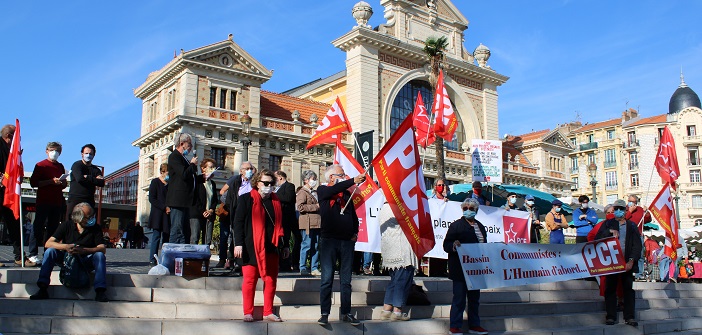The French Communist Party celebrated its 100 years of existence on December 30th last. On this occasion, Robert Injey, head of the PCF in Nice, talks to us about this political party in a series of articles.
100 Years of Commitment
100 years of history, and obviously not everything was perfect. Mistakes and delays are part of this history. But there is a constant commitment to international solidarity, social progress, justice, and peace. Where others have succumbed to the sirens of giving up and have relegated the desire to transform society to oblivion, the PCF, throughout its history, has attempted to do so. It continues to strive for this, under the extremely challenging conditions of today’s France, where leftist forces have never been so weak!
Celebrating a centenary is a delicate moment. Inevitably, there is a look back at its history, with a bit of nostalgia for the period when we were “younger and stronger…”
Celebrating a century for a political force inevitably raises the question: “And now?” The PCF, often declared dead for 30 years, still very much exists, it is a human construction and therefore, like any human construction, it is imperfect and cannot be eternal. Future generations will decide, depending on the circumstances, how to continue this fight for emancipation. This struggle began long before the creation of the Communist Party, and it will continue long after. The only wish for these men and women is to have the determination and ambition to carry this fight forward, because beyond the form and the name, the most important thing is the ideas they will champion, the struggles they will lead.
From this perspective, the tens of thousands, the hundreds of thousands of women and men who have been and are part of this great communist family at some point in their lives can be proud of the fights they have led. They have helped shape 20th-century France, the very France that the business world has continuously sought to challenge for decades. The French Communist Party profoundly marked the political and social history of the 20th century, allowing the popular classes to be actively involved in the political life of the country, a domain previously reserved for the bourgeoisie.
Robert Injey


